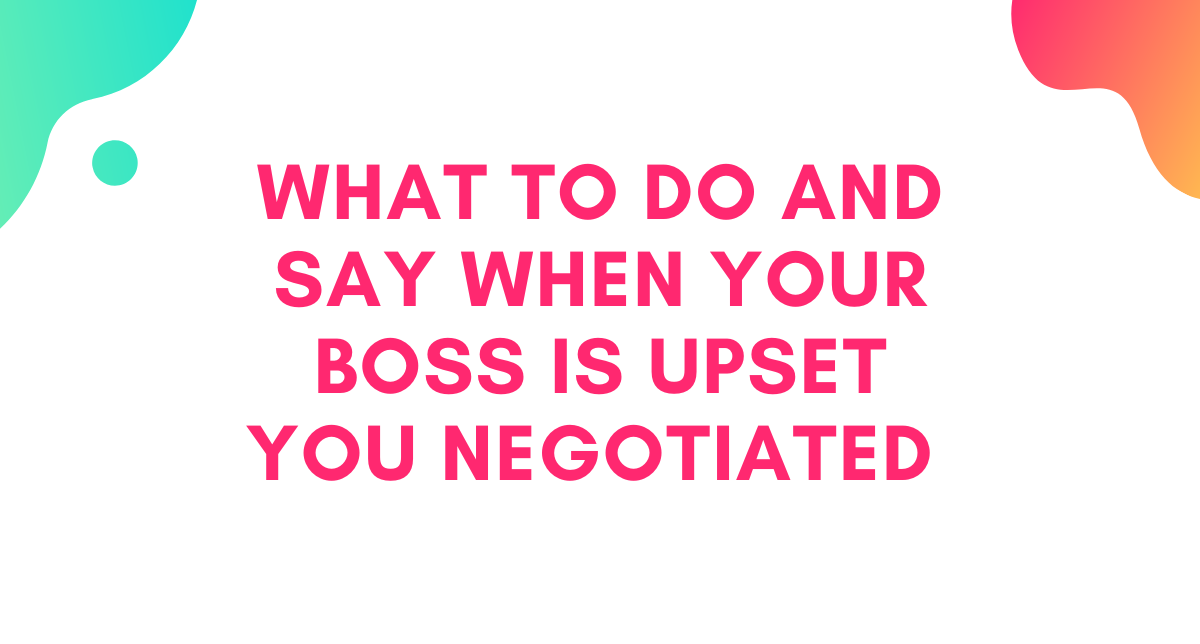What to do and say when your boss is upset you negotiated
The other week, I asked for direct questions from you and received some excellent ones.
One of them was:
"My boss seems distant and cold since I asked for a pay raise. Have I shot myself in the foot?"
Doubting whether you've "shot yourself in the foot," when you've asked for the raise that you've earned and deserve fair and square, is a classic example of Post-Advocacy Jitters.
It's kinda like last week, when I went to a strength training class for the first time and woke up next day with sore muscles and pain all over. Post-workout pain. (Feeling much better now, thank you.)
When a professional woman starts flexing her self-advocacy muscles for the first time (or first time in awhile), it's only natural to feel jittery, nervous, or vulnerable after the initial conversation.
On top of that, you've been conditioned to think you SHOULDN'T feel anything less than pleasantly happy (But let's be real. Who the F is actually always happy? If they're never ever sad or mad, I wouldn't trust them)...
So your brain starts misinterpreting the situation as if you did something wrong...
When in fact, you've courageously taken a stand for you and your career growth in a way that have gotten countless mediocre men promoted and better paid beyond their actual capabilities.
If you've ever experienced Post-Advocacy Jitters, please know this is part of a growth process, and that NO ONE is a perfect negotiator.
In my coaching practice and podcasts series, I teach a negotiation process that's set up to help you advocate for your career growth as an act of service, so that you stack the odds in your favor that when you do negotiate, your boss thanks you for advocating for your raise and promotion.
Many times, this does happen, and sometimes it doesn't. Which doesn't mean that you did it wrong or that you should immediately concede your ask and never ever risk a working relationship again.
Even when the boss seems distant or even upset that you negotiated, this is an opportunity for your to:
Objectively assess the FACTS of the situation
Think through WHO decides what and why
Consider the invisible context, so you can place the reactions from both sides into perspective
Clear the air through a frank and honest conversation, and
Make suggestions for how to move the conversation forward
In the latest podcast episode, I explain each of these 5 steps and offer concrete examples and scripts for you to consider, especially for when you experience Post-Advocacy Jitters or you're worried about risking the working relationship.
Listen by clicking HERE.





